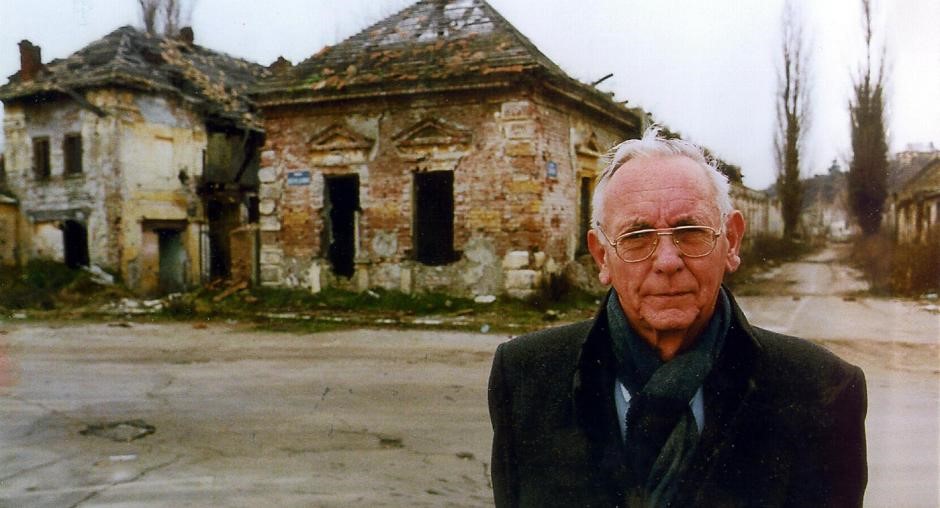By Annie Lentz
Max Kampelman Fellow
During the summer of 1992, the Conference on Security and Cooperation in Europe—the precursor to today’s Organization for Security and Cooperation in Europe (OSCE)—was confronting a harsh reality of the post-Cold War era: the rise of extreme nationalism and, with it, ethnic tensions affecting minority populations.
Caught off guard by the explosion of conflict in a disintegrating Yugoslavia and fearful of similar experiences elsewhere, the participating States of today’s OSCE met in Helsinki and established a new institution, the High Commissioner on National Minorities (HCNM), as “an instrument of conflict prevention at the earliest possible stage.”
The first High Commissioner on National Minorities was Max van der Stoel, a Dutch statesman who served in the Dutch and European parliaments as well as a Minister of Foreign Affairs. He began his duties as high Commissioner in 1993, concentrating on persons belonging to national/ethnic groups with the majority in one State but minority in another and defining his role in international disputes as one of “an independent, impartial and cooperative actor.”
Over his six years as High Commissioner, Van der Stoel noted several recurring themes throughout the OSCE region, including “minority education and use of minority languages, in particular as matters of great importance for the maintenance and development of the identity of persons belonging to national minorities.” He also observed a lack of effective participation of national minorities in state governance.
In October 1998, Van der Stoel and the OSCE’s Office for Democratic Institutions and Human Rights (ODIHR) convened a conference in Switzerland that included not only the OSCE participating States but also pertinent international organizations. The event, titled “Governance and Participation: Integrating Diversity,” focused on the meaningful and effective integration of national minorities into states.
Following the conference, Van der Stoel organized a meeting of internationally recognized and independent experts—including Vernon Bogdanor, Professor of Politics and Government and CUF University Lecturer at Brasenose College, Oxford University, and Ms. Sally Holt, who, at the time, was Legal Officer at the Office of the OSCE High Commissioner on National Minorities—to “elaborate recommendations and outline alternatives, in line with the relevant international standards.”
The result was the 1999 Lund Recommendations on the Effective Participation of National Minorities in Public Life, named after the Swedish city where the experts completed the document. The Lund Recommendations outlined specific goals, like The Hague and Oslo Recommendations before them, “to encourage and facilitate the adoption by States of specific measures to alleviate tensions related to national minorities and thus to serve the ultimate conflict prevention goal of the HCNM;” and “clarify in relatively straight-forward language and build upon the content of minority rights and other standards generally applicable in the situations in which the HCNM is involved.”
The Lund Recommendations, which were adopted on November 9, 1999, served as the basis for future progress regarding the rights of persons belonging to national minorities. While the Lund Recommendations have not necessarily been the direct catalyst for national minority progress since, subsequent actions reflect the same international desire to guide tense situations which could erupt into violence toward a stabilizing and peaceful resolution. And doing so in a way which respects the rights of persons belonging to national minorities and their collective aspirations are satisfactorily reflected in the organization and operation of the state.
For example, the 2001 Ohrid Agreement ended the ethnic conflict in North Macedonia by giving the substantial Albanian minority in that country specific privileges, including a defined role in government. This agreement built off the established approach of the Lund Recommendations to extend the rights of national minorities.
|
OSCE Thematic Recommendations and Guidelines Regarding National Minorities
The thematic Recommendations and Guidelines address recurrent issues that the successive OSCE High Commissioners for National Minorities have faced in their work. Intended for policymakers and government representatives, they offer guidance on developing policies that may help ease inter-ethnic tensions.
|
As the Lund Recommendations complete their second decade in existence, they remain a mainstay of efforts to accommodate national minorities in the still cold reality of geopolitics and ethnic nationalism, though much remains to be accomplished. The greatest challenge is to take guidelines of reason and respect developed by international officials and legal scholars and to implement them in real situations where passions run high, hate may be a tool of political power, and violence looms on the horizon.






